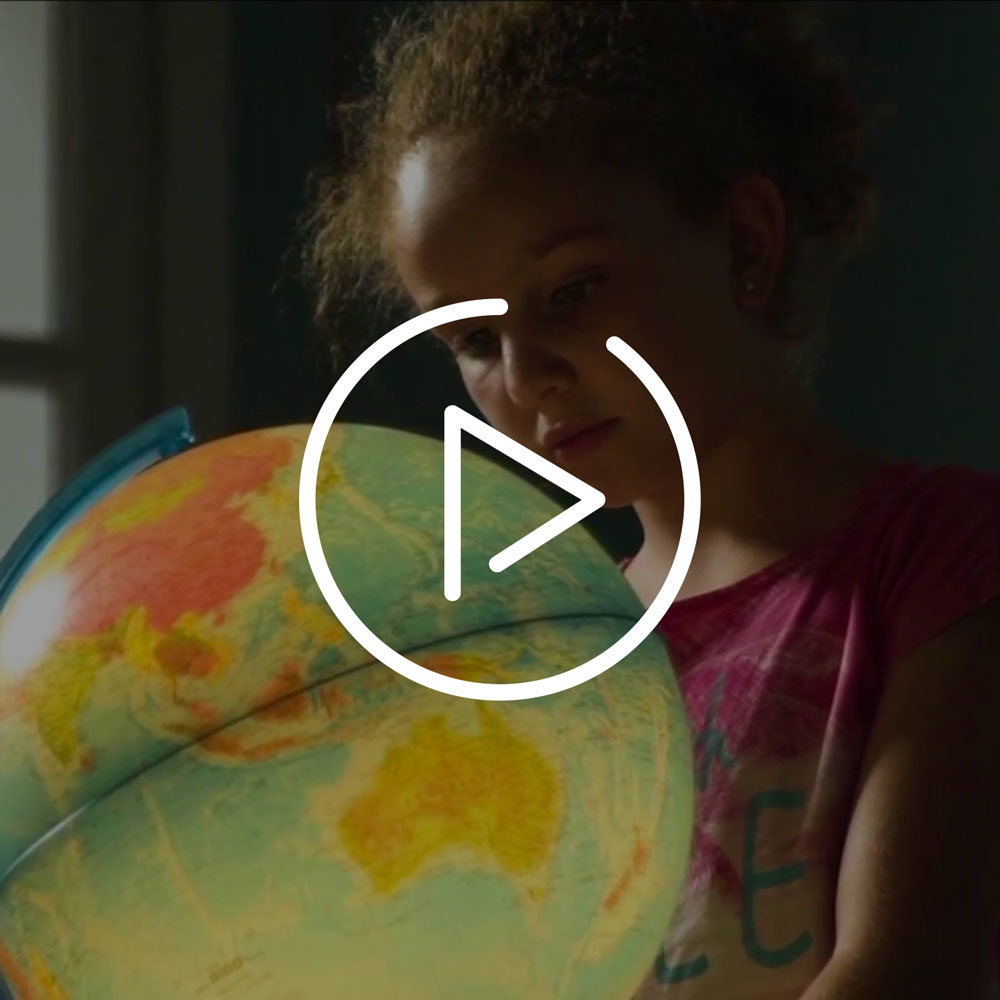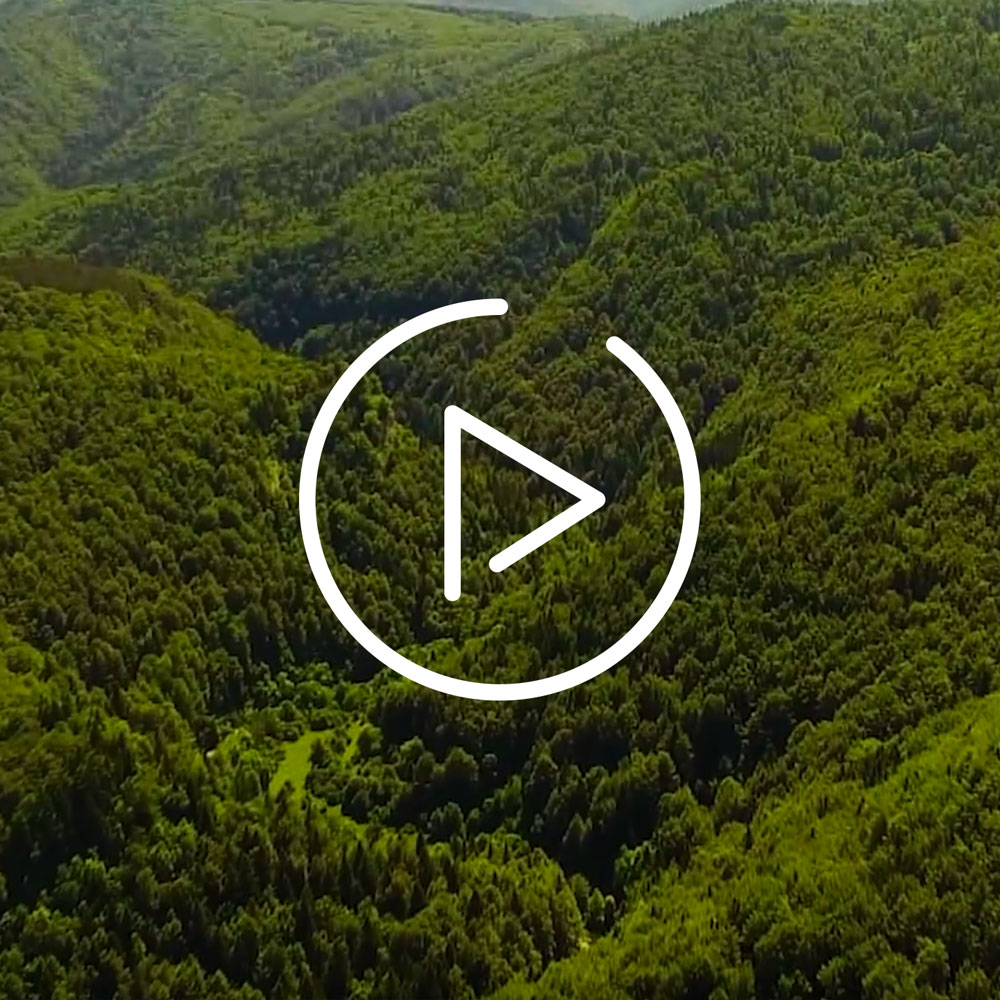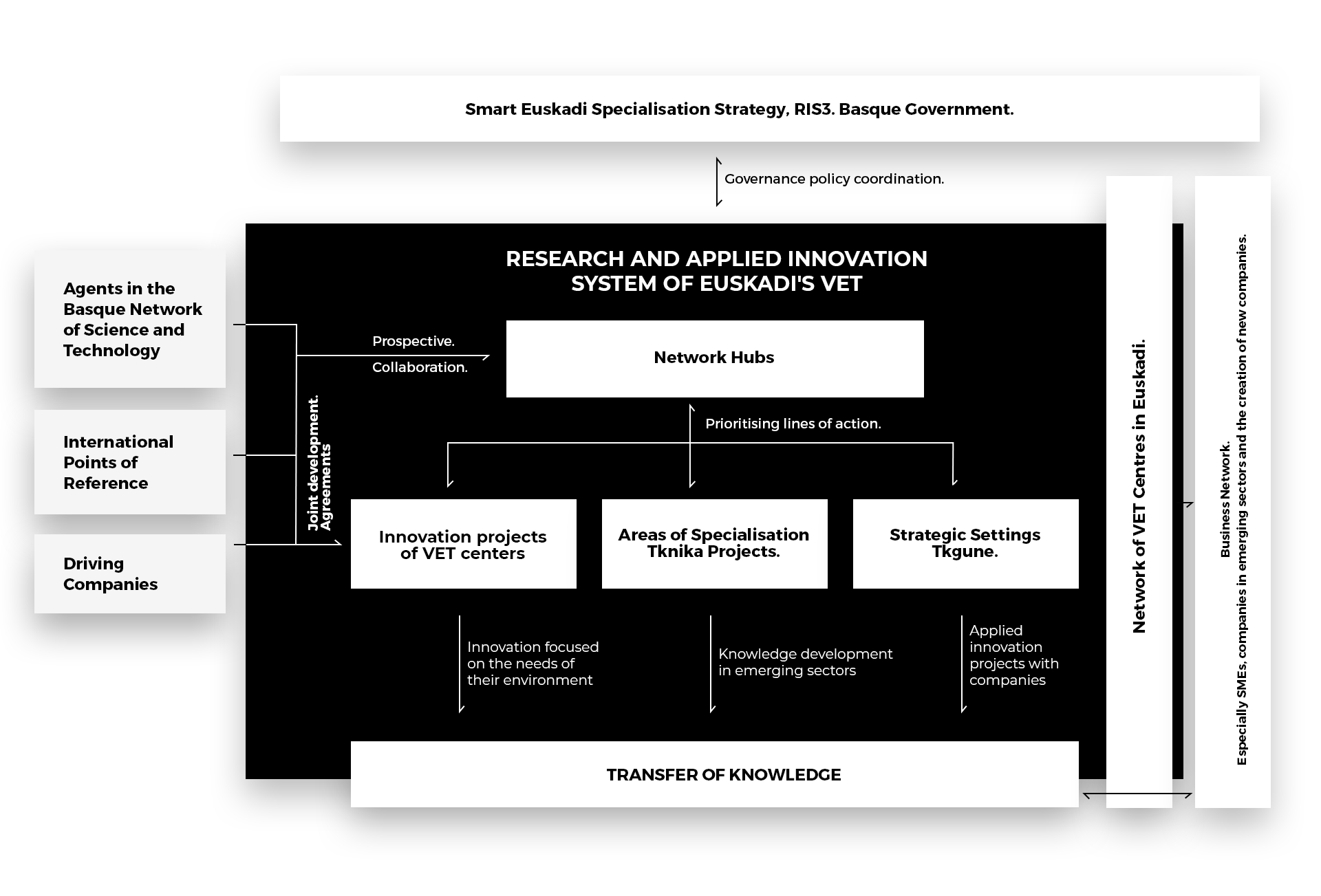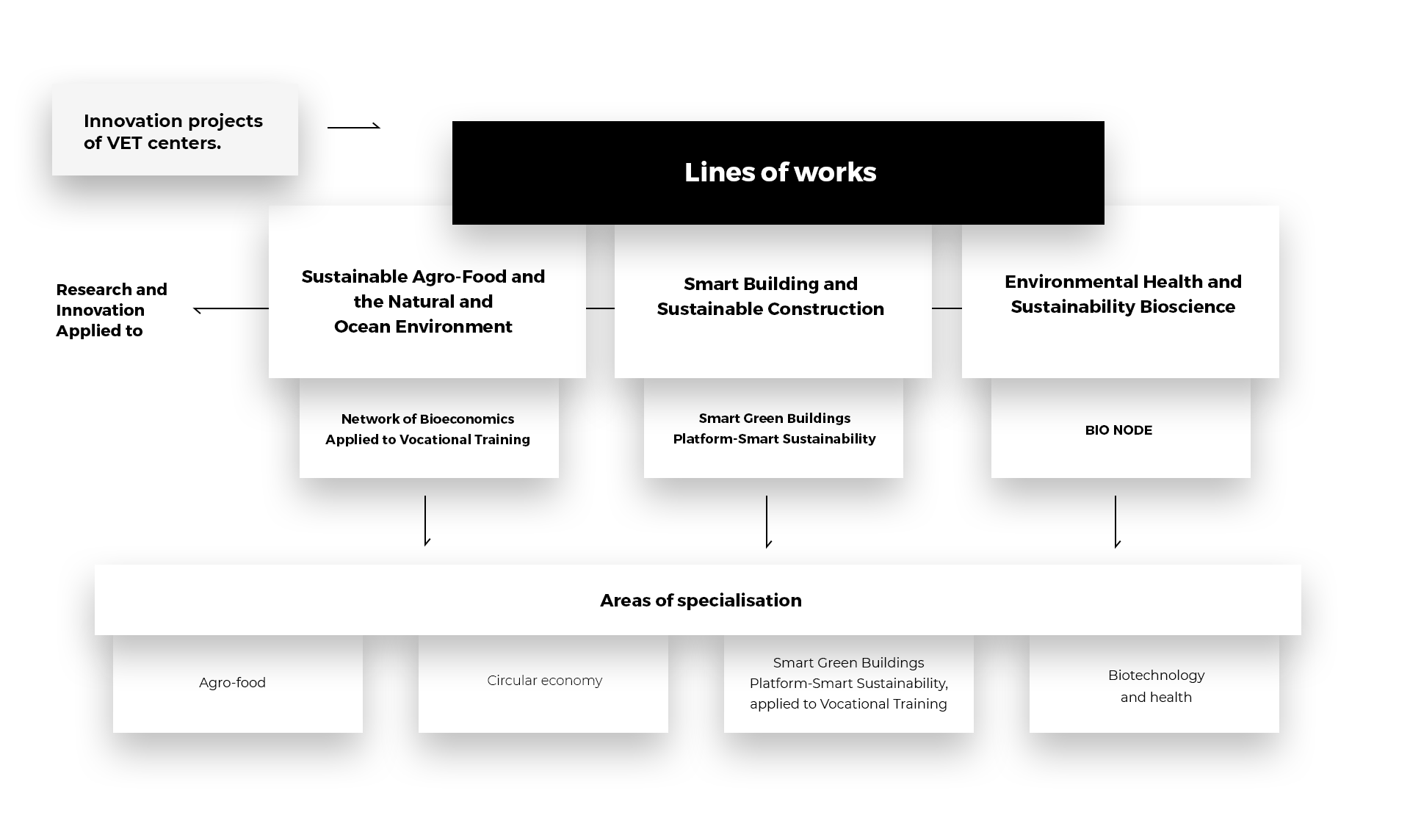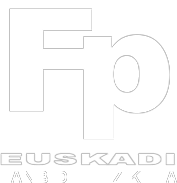Biosciences and Sustainability
Vocational Training plays a crucial role in this sustainable human development. It will be executed under a production model based on the efficient use of existing resources, broadly and comprehensively, as support for a sustainable economy that we have the obligation to build, for our own benefit and for the benefit of future generations.
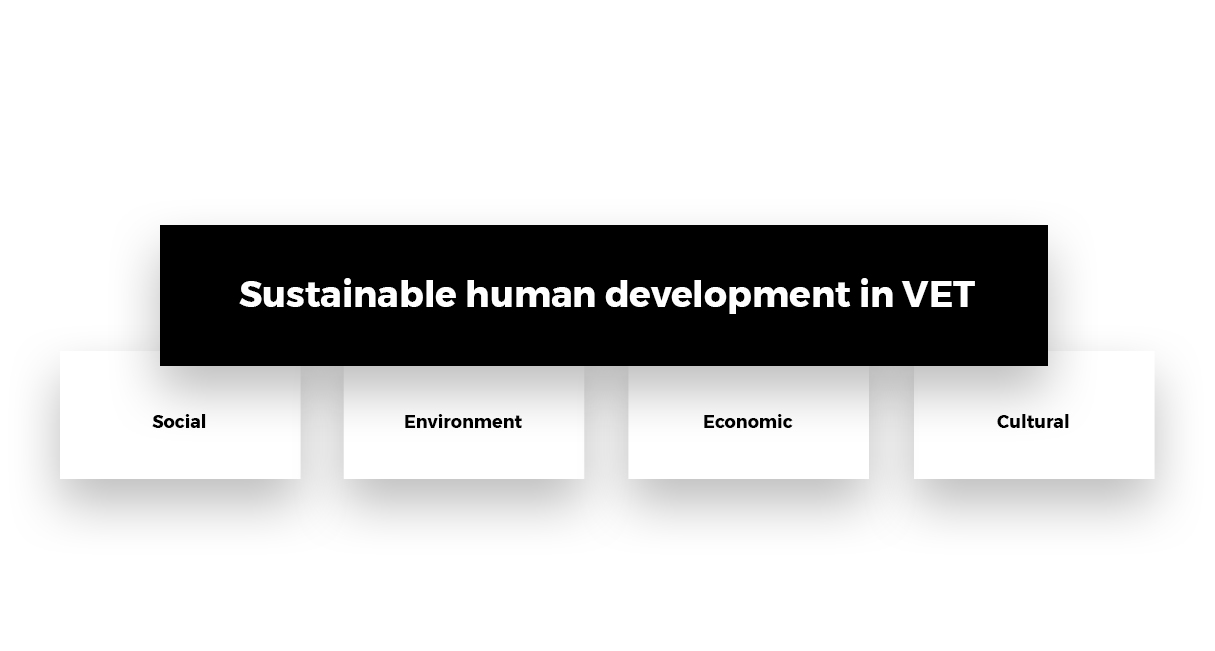
At Tknika, we are working on creating work environments that clearly believe in Sustainable Human Development, and with the different Vocational Training families, we are working toward achieving the 17 Sustainable Development goals established worldwide for 2015 through 2030.
Sustainable development objectives
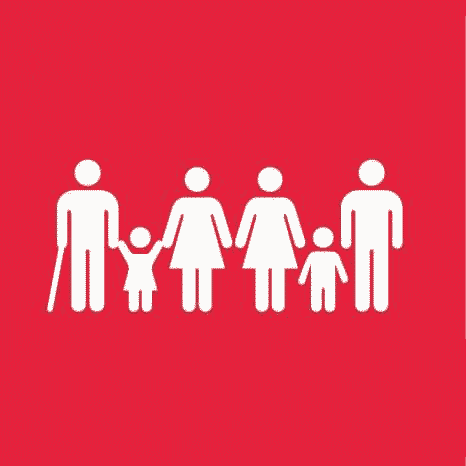
1. End of poverty

2. Zero hunger

3. Health and well-being

4. Quality education

5. Gender equality

6. Clean water and sanitation
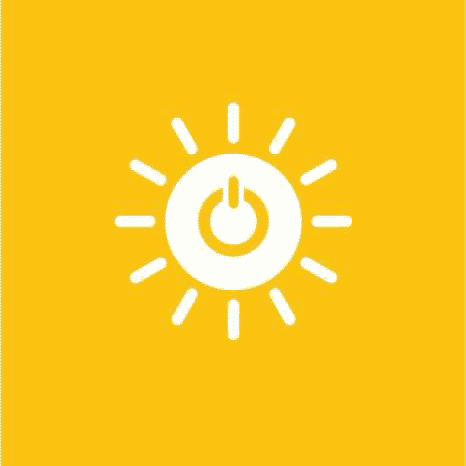
7. Affordable and non-polluting energy

8. Decent work and economic growth

9. Industry, innovation and infrastructure

10. Inequality reduction

11. Sustainable cities and communities

12. Responsible consumption and production

13. Actions for the climate

14. Underwater life

15. Life of terrestrial ecosystem
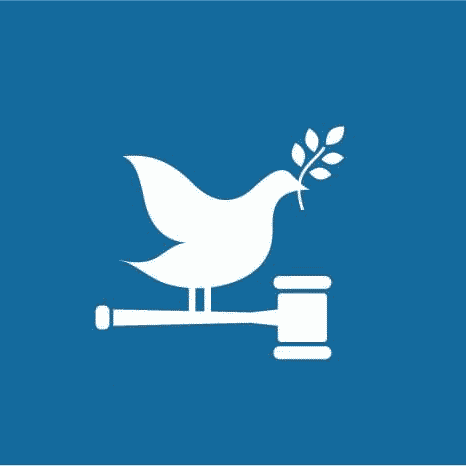
16. Solid peace, justice and institutions

17. Alliances to achieve the goals
This is how we work from this area, through collaborative networks, to develop a Research and Applied Innovation System of Euskadi’s VET.
Research and Applied Innovation System of Euskadi's VET
Vocational training makes sense based on its alignment with Basque Government policies and with the priorities that it establishes within the framework of smart specialisation. To this end, besides keeping watch over and knowing said policies, Tknika applies them when prioritising the projects to be worked on.
Euskadi’s vocational training is a fundamental agent, acknowledged in different scopes (companies, Government, European classes…), so that, represented by Tknika, Euskadi’s vocational training participates in initiatives oriented toward giving shape to, and rolling out innovation policies.
One of the key challenges facing VET is adapting knowledge to the current and future needs of the Basque business fabric. the usefulness and quality of the
service we offer society will largely depend on our ability, and especially how fast, we can build this knowledge into VET.
The VET adaptation task should be streamlined and exible. This is the idea behind the VET SURVEILLANCE HUBS. Specialised centre hubs grouped under theme and with the aim of guiding the vasque VET innovation system with:
- Studying and rolling out innovation strategies in the VET Centre network.
- Technological monitoring. Contrast with the Basque Network of Science, Technology and Innovation, Driving Companies, International Agents, etc.
- Draw up conclusions, prioritising initiatives.
- Promote projects, thus marking the lines of action for the VET Innovation System so that we can anticipate company needs.
The currently operative HUBs are:
- Advanced manufacturing.
- Autonomous robotics
- Digital and connected factory.
- Energy.
- Biosciences.
- Health
Drawing support from the capability and experience of centres in developing projects and the knowledge surrounding them, we develop projects designed to meet their environmental needs, as well as the needs of innovation itself.
Tknika participates in selecting projects to be developed from the centres, and we take charge of monitoring them, as well as of guaranteeing all of their transfer objectives. In addition to proposing the projects to be carried out on an annual basis, the centres are responsible for executing them and their roll-out.
These are the projects currently carried out at the centres:
We carry out projects with the intent of creating knowledge and training ourselves in areas highlighted as priority by Basque Government policies. In this way we provide the knowledge that our professional training centres need in order to collaborate with companies, responding to the present and future needs of the industry.
With the aim of updating the skills of teachers and students of Vocational Educational Training, we develop collaborative projects with SMEs in the Basque Country, promoting innovation based on the skills, resources and facilities of the network of VET centres.
With these lines of work:
PROFESSIONAL FAMILIES
- AGRARIAN
- MARITIME FISHING
- FOOD INDUSTRY
- ENERGY AND WATER
- HOTEL AND CATERING AND TOURISM
- PHYSICAL AND SPORTS ACTIVITIES
PROJECTS
- BIOTKNIFISH
- REMOTE DETECTION
- DRONES
- ENVIRONMENTAL
- FOOTPRINT
- CIRCULAR ECONOMY
- FOOD
- DRONE APPLICATION IN AGRICULTURE
WORK NETWORKS
BIOECONOMICS NETWORKS APPLIED TO VOCATIONAL TRAINING
PROFESSIONAL FAMILIES
- WOOD AND FURNITURE
- BUILDING AND CIVIL WORK
- CONSTRUCTION
- ENERGY AND WATER
PROJECTS
- BIM TECHNOLOGY
- SUSTAINABLE CONSTRUCTION
- ENVIRONMENTAL STATEMENTS
- ENERGY EFFICIENCY
- DRONES
WORK NETWORKS
SMART GREEN BUILDINGS PLATFORM-SMART SUSTAINABILITY
PROFESSIONAL FAMILIES
- CHEMISTRY
- HEALTH
- CULTURAL AND COMMUNITY SERVICES
- SAFETY AND ENVIRONMENT
- PERSONAL IMAGE
- TEXTILE
- PHYSICAL AND SPORTS ACTIVITIES
PROJECTS
- BIOTECHNOLOGY
- NANOCELLULOSE
- BIOCOMPOSITES
- SUSTAINABLE TEXTILE
- COLLAGEN
- HEALTHY AGEING
- CELL BIOLOGY
- MOLECULAR BIOLOGY
WORK NETWORKS
BIO NODE
Network of Bioeconomics Applied to Vocational Training, which, out of all training activities, encourages applied innovation and research, obtaining products and services, generating economic value, and using resources of biological origin in an efficient and sustainable way as fundamental elements.
Smart Green Buildings Platform-Smart Sustainability, applied to Vocational Training. Multi-disciplinary forum for the interrelation and exchange of knowledge and experiences between all professional families (Construction, Wood and Furniture, Power, Environmental Health, Sociocultural and community services in relation to Smart and Sustainable Buildings).
One of the key challenges facing VET is adapting knowledge to the current and future needs of the Basque business fabric. the usefulness and quality of the
service we offer society will largely depend on our ability, and especially how fast, we can build this knowledge into VET.
The VET adaptation task should be streamlined and exible. This is the idea behind the VET SURVEILLANCE HUBS. Specialised centre hubs grouped under theme and with the aim of guiding the vasque VET innovation system with:
- Studying and rolling out innovation strategies in the VET Centre network.
- Technological monitoring. Contrast with the Basque Network of Science, Technology and Innovation, Driving Companies, International Agents, etc.
- Draw up conclusions, prioritising initiatives.
- Promote projects, thus marking the lines of action for the VET Innovation System so that we can anticipate company needs.
The currently operative HUBs are:
- Advanced manufacturing.
- Autonomous robotics
- Digital and connected factory.
- Energy.
- Biosciences.
- Health
Drawing support from the capability and experience of centres in developing projects and the knowledge surrounding them, we develop projects designed to meet their environmental needs, as well as the needs of innovation itself.
Tknika participates in selecting projects to be developed from the centres, and we take charge of monitoring them, as well as of guaranteeing all of their transfer objectives. In addition to proposing the projects to be carried out on an annual basis, the centres are responsible for executing them and their roll-out.
These are the projects currently carried out at the centres

